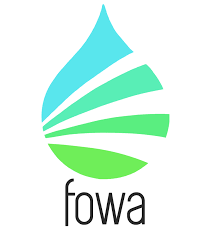FAQs
Blue Septic Tank Service, Inc.
What is your availability?
Our availability varies based on your location. We determine pricing according to your proximity to our service area. For accurate quotes on grease trap cleaning or drain line cleaning, please contact us directly.What products and services do you offer?
We offer a comprehensive range of services, including septic tank pumping and cleaning, grease trap pumping and cleaning, sludge dewatering, septic tank manholes, risers, filters, and bacteria products.How often should I have my septic system pumped?
We advise having your septic system pumped every five years. For more detailed information, please consult our team of experts.Are there any environmentally friendly options for septic systems?
Regular pumping and maintenance of your system is crucial for environmental protection, as malfunctioning systems can contaminate local ecosystems. If you're uncertain about your septic system's condition, we encourage you to contact us for an assessment. We provide a wide range of services from grease trap cleaning to septic pumping.How often should my grease trap be cleaned?
The cleaning frequency depends on your kitchen's volume and local regulations. Generally, we recommend cleaning grease traps every one to three months for most food service establishments. Regular cleaning prevents backups, fines, and unpleasant odors. Contact Blue Septic Tank Service to schedule your grease trap cleaning.What happens if I don't clean my grease trap regularly?
Neglecting grease trap maintenance can lead to overflows, foul odors, pest infestations, plumbing blockages, and potential city fines. It may also disrupt business operations and result in costly emergency repairs. Regular grease trap cleaning is essential to avoid these issues.What size grease traps do you service?
Our grease trap cleaning services accommodate a wide range of sizes, from small under-sink units to large outdoor interceptors. We cater to various establishments, from small cafes to high-volume commercial kitchens.What is sludge dewatering?
Sludge dewatering is a safer disposal process for grease trap cleaning. It involves bonding solid particles in grease trap waste with stabilizing materials while removing water. This process results in a solid waste product that's easier to remove. We collect liquid sludge from grease traps, add a lime stabilizer to increase pH, then mix it with a polymer in watering boxes. The polymer binds to solids and contaminants, allowing water to be drained, leaving a dried waste product that's safer and easier to dispose of.Why is dewatering necessary?
Dewatering is important for several reasons: it reduces disposal costs by minimizing volume, improves handling for landfilling, incineration, or land application, and prepares sludge for further treatment or reuse. For professional sludge dewatering and grease trap cleaning services, please contact our team.What happens to the dewatered sludge?
The fate of dewatered sludge depends on its quality and treatment. It can be landfilled as solid waste, composted with organic materials, incinerated for energy recovery, or applied to land as biosolids if it meets safety standards. For grease trap cleaning and sludge dewatering services, please contact Blue Septic Tank Service.




